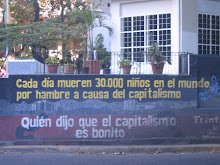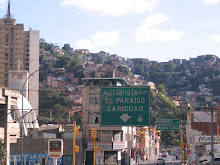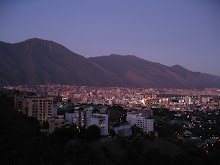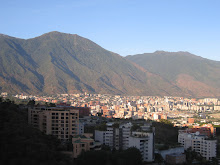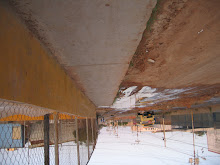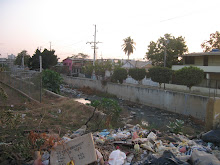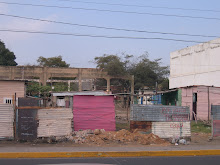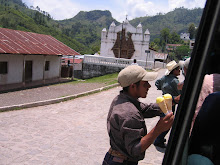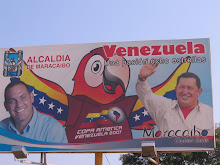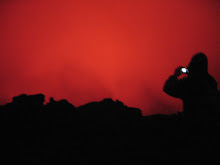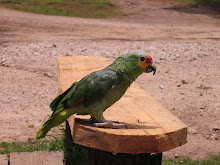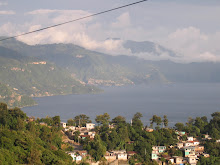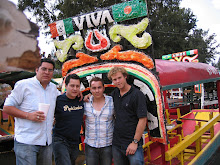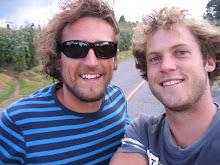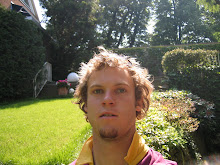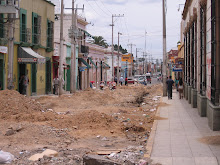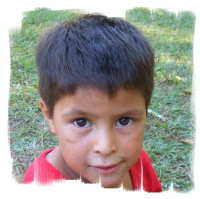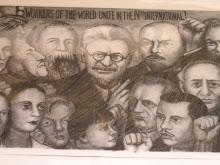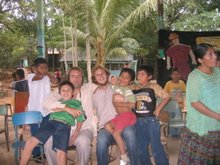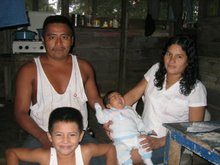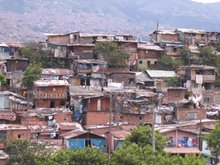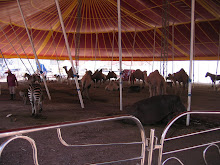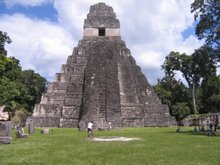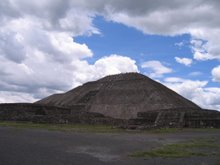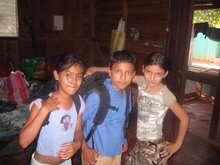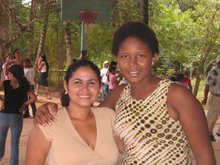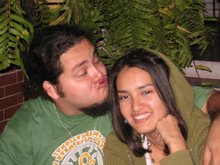I came to Venezuela excited to see what it was really like in the land of Hugo Chavez and his self-proclaimed 21st century socialism. His mandate is to help the poor by delivering education, health care, affordable housing and work to the majority. His methods include freeing the country from ¨imperialist control¨ and creating a Bolivarian revolution uniting people across Latin America and indeed with anyone who shares his anti-imperialist goals. Chavez´s closest allies are Cuba and Bolivia who have socialist regimes. He has also recently been joined in this alliance by Daniel Ortega (Nicaraguan President who was in power during the CIA backed contra war from 1980-1990. He was acclaimed by unicef for astounding advances in health, nutrition and education before being attacked by the US for the threat that an alternative economy to Capitalism posed to US domination of Central America and the Munroe Doctrine. This provoked the first war on terror called for by Reagan.) and Rafael Correa of Ecuador. Other leftist governments of Latin America include Brazil, Chile and Uruguay although they aren´t a part of the Bolivarian Revolution. This movement is about nationalising industry and moving out from under the thumb of the United States ¨free trade¨agreements as well as the power of the World Bank and IMF. The nationalising of oil, gas and mineral reserves poses a problem to big business as it decreases there profits. For this reason these regimes have faces and continue to face big opposition from world media (inherently tied to big business) and the US government.
On the way to my first location Merida which took 10 hours to get to from the border including a few bus changes and immigration I was checked 3 times by army forces. In Colombia a strict military state I only had my bags checked at the airport, I suppose that it is to be expected with the reputation of Colombia being that everyone going there is going for the Cocaine and everyone leaving there is carrying it!
So as the soldiers went through my bag for the 3rd time I wasn´t really too bothered by the experience other than the prospect of the bus leaving without me making my passage void and leaving me with the army guys. They picked through my things for half an hour looking at all my family photos and asking to see all the money that I was carrying which isn´t much. I think they were more bored than in search of drugs but there manner was military firm which took away from the experience a little.
I have since been told that the Venezuelan military is bigger than that of Colombia at around 800 000. Chavez has set a goal of having 1 million people with military training, something for which he has been criticised heavily. In isolation I don´t agree with militarisation but with the amount of foreign business opposition he faces and CIA backed the military coup he has already survived it´s easy to see why he would want this force. It is written in there constitution that the force cannot attack another nation only defend it´s own sovereignty although I suspect the US operates under the same guise. From the military people I have spoken to so far it´s biggest draw seems to be the free education and reasonable tax free wage it offers. So far I have spoken to a guy who wants to be a mechanic who is also taking classes in Geography and Maths and a girl who is studying maths and wants to be a teacher. The time requirement of 2 years means that it´s feasible to enter to get the qualification you desire and leave. Both people that I spoke to hadn´t really thought a lot about war and don´t consider it a possibility. Education is an important part of development and seems to be a valued part of government policy with rising literacy rates and new tertiary education possibilities. Tying education to military is not ideal but it´s a decision many people make to allow full-time study with a living wage. As far as I know this only exists in a few countries in Europe and Cuba. In Australia you get some money if you meet criteria but I don´t know anyone who was able to live off this wage alone.
But what do they think about Chavez!?
First impressions came from the graffiti. Something that I have been observant of throughout the Latin American leg of my trip. The overwhelming majority of graffiti is in support of the government. Some of the pictures and slogans of Chavez (of which there are hundreds in each city) have been defaced but many remain perfectly intact, opposition murals on the other hand are invariably defaced and very few freestyle drawings in opposition paint the towns. This is in contrast to Mexico and Colombia where there was nothing in favour of the current regimes and very strong opposition offered. This method of expression which doesn´t involve media giants represents the views of the young and the lower or middle class (very rare to see a business man with a spray can but not so uncommon at a newspaper office). It looks like the young and the middle class are in support of Chavez! The main government murals gloat about the 10 million votes Chavez received in the recent election, slogans about delivering socialism and cutting imperialist ties and the Bolivarian people´s revolution in Latin America.
The people?
A trumpet player who loves to eat until he can´t fit anymore but is proud to only support a mild pot belly is not happy with Chavez because when he goes to Spain or the US his money isn´t worth much (can´t buy that extra desert) and because he has to save for a few years to buy a car.
A language professor, Rafaela who doesn´t like Chavez but thinks that he is helping the poor. She didn´t have strong opinions about whether he would damage big business but was concerned about the possibility.
Panadoria owner selling delicious fried empenadas who was convinced that war will be upon Venezuela within 2 or 3 years because Chavez is a bad man. Maybe because of ties with Iran or maybe because he is antagonising the US. (He called Bush the devil and frequently speaks out about the damage that there regime causes across the world including there terrorism of Iraq and the majority of Central America.)
Tourism student from Valencia who thinks that the poor will be lazy if they are given social support such as housing food and health care taking away the incentive to work! Her parents are both university professors but still they can only afford a comfortable life in Venezuela and not travelling the globe like me. I can understand the desire to be like the west but I didn´t get how helping the poor was a bad thing to do with the countries oil money. Her statements about corruption and pollution blamed on the current regime seem to suggest the country was a world leader before Chavez came to power although I can´t find anything to support this image. She fears the US will stop buying there oil and then the country will collapse. This could be the case however I think oil scarcity and the OPEC alliance make this difficult - anyone who knows more about this possibility I would love to hear from!
Oil management worker and tourism student daughter are communists. They are atheist and support Chavez all the way. They have a lot of government distributed literature about the nature of the Imperialist influence with references from authors such as Joseph Stieglitz (Globalisation and it´s Discontents and another book about the World Bank´s role in the Argentinian collapse of 2002 i think) and Noam Chomsky (Hegemony or Survival, Failed State) and other books about the man himself. Also they had Trotsky (A Communist who was a party member in Lenin´s government and wrote a lot in opposition to Starlin, I went to his house in exile in Mexico city!) and Simon Bolivar (most important Venezuelan in history famous for liberating Venezuela, Colombia, Ecuador and Panama who believed in a united Latin America and wrote a lot of documents still held in high esteem in South America). People in there street celebrated when as part of my introduction was that I believe Chavez and his anti-imperialist alliance give hope to Latin America and maybe the world. (Experts tell me these regimes have come and gone in the past with little impact on the big boss, the US)
Hot dog vendor from Valencia that has a sister living in Miami illegally as of 4 years ago. He thinks that Chavez is helping the poor but that he wants to turn the country into Cuba with heavy political repression and no opposition. He wants the freedom to drink in the street and enjoy the parties that Venezuelan´s love. I feel like these fears are as yet unfounded given the 12 consecutive democratic elections that Chavez has won but should they come true he has reason to worry. He works 4 hour days as a hot dog vendor but wants to move to work in the bar that his wife works at. His child is well fed and goes to school on these wages. He also suspects the government of taking all the money they are gaining from the taxes they are imposing of being taken for there own interests (although he´s not currently paying any).
Kebab vendor from Peru (in Valencia) she came to Venezuela in search of more freedom to work and work opportunities. She likes Chavez because she can see he is helping the poor and they were accepted into the country to work. She sees her own right-wing government in Peru as a threat to the people there that will take the situation from bad to worse. She sees that the oil money in Venezuela can provide a better quality of life for the people. Her hope is to makes some good savings in 4 or 5 years of work in Venezuela and then to go back home with her husband (taxi driver) to live with her daughter (who is now living with her mother). She shares the anti-imperialist views of Chavez and doesn´t believe in the "American dream" and associated propaganda.
Kebab customer believes that the American way and domination or world economy and military is unjust and that the war they took to Vietnam and Nicaragua were illegal as is the killing of Iraqi´s. At the same time he thinks that Chavez is crazy.
(This has been what I have enjoyed most travelling. Striking up a conversation and learning about the lives of the people living in each place I visit and then asking there thoughts about political situations which affect them. I think people are quicker to offer there thoughts on the world and tend not to have the same media rhetoric responses that I find in more developed/controlled countries. I really enjoy these conversations!!)
A big issue is the decision by Chavez not to renew the lease of one of the main media organisations TV stations which comes up for renewal in may. This has been scandal in world media pointing to a totalitarian system where freedom of speech is being eroded. What hasn´t been mentioned is the in 2002 when the coup against Chavez was staged with the support of this station they ordered there programmers not to mention that Chavez was taken from power. For this reason there were high-up resignations because of the very thing that Chavez is being accused of, preventing freedom of the press. The purpose of this station for which the world media has now largely taken up there cause has been to destabilise the government by reporting only bad news from the government and dedicating hours of programming to degrading him and taking apart his policies. During the coup the station most likely to speak out against the overthrow of a democratically elected government was shutdown. Hypocrisy. It is a concern that a channel dedicated to undermining the government will not be allowed to continue programming however given the coup it is hard to believe that the situation would be dealt with any more diplomatically in a western government for example if an John Howard or George Bush were ousted (forbid!) would they be so gentle in there action against the organisation when they regained there power? There are many RIP RCTV graffiti´s in the street and many others who say it´s the first step to becoming Cuba.
I also spoke to a Cuban working here in Venezuela as part of an exchange for Oil who called Cuba a paradise where there is no bombardment for consumer demand or crime in the streets at night something very far from the streets of the rest of Latin America where everyone lives in fear. Of course there are many Cubans who feel the opposite and can´t wait for the day they are free to buy everything that globalising companies want sell to them. There are many Cubans here as Doctors, Engineers and Architects involved in improving medical services and affordable housing as well as other construction as a part of the above mentioned exchange. This is opposed by the wealthy because "there are Venezuelan´s who can do these jobs" and "we shouldn´t be giving away resources for nothing". Invariably these people forget that nationalising industries which they also oppose generates money for these programs as well as that there doctors don´t want to go to work in the slums. Lack security of security and lower wages than private institutions pay may be valid reasons for not having doctors in the slums however its hard to argue that bringing medical care to the poor can be a bad thing! People here making that argument show the depth of opposition that Chavez faces.
People here are RED for Chavez or BLUE for Rosales opposition leader in the recent election. The division is strong. A friend told me that her grandparents together for 50 years have had problems because her Grandfather is a friend of Chavez and invited him to lunch and her Grandmother is against him. It´s forbidden to speak politics at family events because views are held so strongly. For now it seems most of the opposition is media fed with few concrete reasons against policy however the threat of a totalitarian regime at war with opposing regimes doesn´t seem too distant a possibility to be mentioned.
For me in my first week in the RED land I still see his alliance as a hope for the region and wait to see that the fears of the media are only to break down a popular movement for the poor and not for seeing the future.
MISSION - keeganrs@gmail.com
My blog is about my dream for a world where everyone is allowed to exist and improving the quality of life of the world’s citizens is our priority.
For many reasons I reject the current path of the world.
Rich world insanity, excess and lies. Poor world denial of human rights and food. The destruction of the planet. Our homogenisation into one consuming mass of idiots.
Rich world insanity, excess and lies. Poor world denial of human rights and food. The destruction of the planet. Our homogenisation into one consuming mass of idiots.
We need to look for new ways. New human interactions at every level. New models of participation or at least rescuing old ones. Things like couchsurfing.com and woolf.org are steps in this direction as are the models of health and education being created and implemented in Venezuela.
We need to stand up and say "Enough!" to the current regimes and look to support all those initiatives for a better world and create our own.
Monday, 29 January 2007
Subscribe to:
Comments (Atom)



